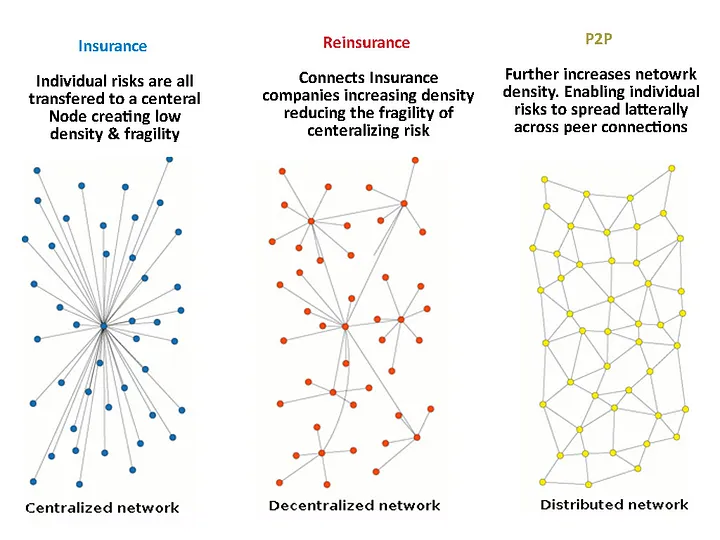
THE CORNERSTONE OF P2P RISK SHARING
Peer-to-peer (P2P) risk sharing is a model where individuals collectively manage risks, bypassing traditional centralized companies. In a P2P network, participants share the responsibility of covering each other's losses. The term "cornerstone" in this context signifies the key principle of distributing risks across multiple dimensions:
Probability Calculations
RiskShare begins with assessing the likelihood of common risks through probability calculations. This fundamental step is crucial for understanding and quantifying potential risks, allowing participants to make informed decisions.
Anyone
Unlike traditional insurance where a single company assumes all risks, RiskShare distributes these risks among a large number of participants within the peer-to-peer network. Each participant takes on a portion of the total risk, making it more manageable for everyone involved.
Any Place
Geographical distribution is another key aspect. By involving participants from any place, RiskShare minimizes the impact of local events or disasters. This geographical spread ensures that risks are not concentrated in a single area, enhancing the resilience of the network.
Any time
Risks can occur on a daily basis rather than infrequent events such as floods and earthquakes, so RiskShare also focuses on temporal distribution. By spreading risks over anyone at any place and any time, participants are better prepared to handle potential losses whenever they may arise.
Summary
The cornerstone of RiskShare is the collaborative effort to diversify and distribute risk among a wide range of participants, across any geographical locations, and in any time period. This multi-dimensional approach creates a more robust and resilient system for managing and mitigating risks.